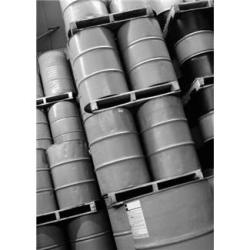Source Institutions
Source Institutions
Add to list Go to activity
Activity link broken? See if it's at the internet archive

In this math lesson, learners apply mathematical modeling to solve a real-world storage problem, in which a manufacturing company is given two options for storing oil barrels. These options include a square storage unit and a rectangular storage unit (twice the area of the square unit). Learners must decide which of the storage units will provide the most inexpensive space to store 125 containers. Learners use 35mm film canisters and paper mats to model storage arrangements for each unit. Learners find that the arrangement of the cylinders in the storage unit affects the cost. Learners work in small groups, collecting data, performing necessary computations, and constructing reasons for their unit selection.
- Under 5 minutes
- 45 to 60 minutes
- $10 - $20 per group of students
- Ages 11 - 14
- Activity, Lesson/Lesson Plan, Simulation
- English
Quick Guide
Materials List (per group of students)
- Two square paper mats (8 1/4 x 8 1/4 inches)
- Approximately 65 empty film canisters or small plastic vials Iike Loew Cornell Storage Cups
- Calculator
- Data Collection Worksheet
Subjects
-
Mathematics
-
Data Analysis and Probability
- Data Analysis
- Data Collection
- Data Representation
-
Measurement
- Units of Measurement
- Size and Scale
- Number and Operations
- Reasoning and Proof
-
Data Analysis and Probability
-
The Nature of Technology
-
The Design Process
- Problem Solving
-
The Design Process
Informal Categories
- Financial Literacy
Audience
To use this activity, learners need to:
- see
- read
- touch
Learning styles supported:
- Involves teamwork and communication skills
- Uses STEM to solve real-world problems
- Involves hands-on or lab activities
Other
This resource is part of:
Access Rights:
- Free access
By:
Rights:
- All rights reserved, PBS, 2012
Funding Source:
- US Department of Education
